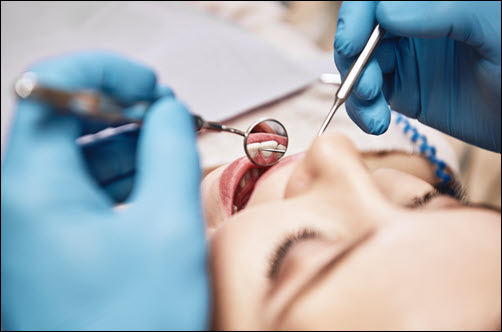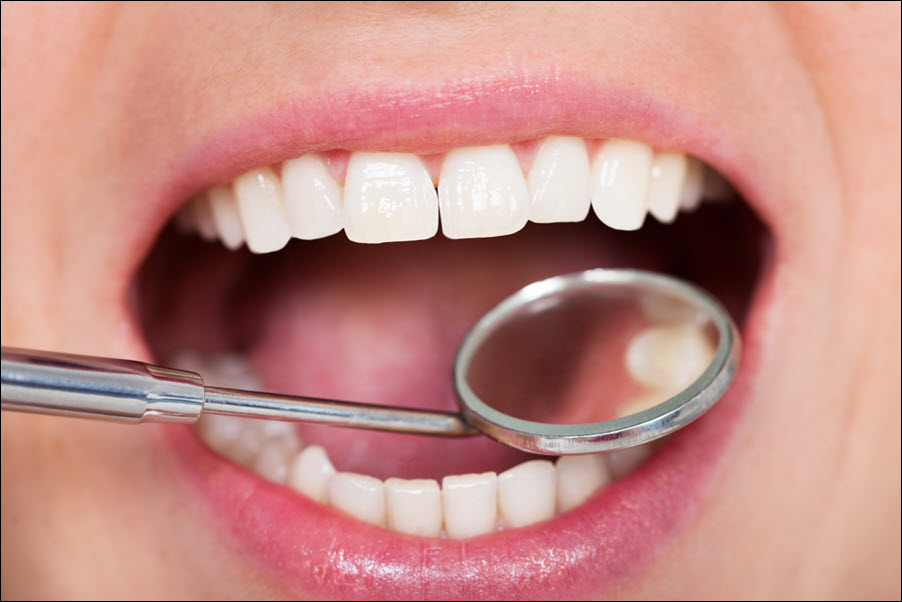Routine professional dental exams protect oral health and prevent serious dental problems. Regular checkups detect early signs of cavities, gum disease, and oral infections. Dentists clean plaque and tartar buildup, improving gum health and strengthening enamel. Professional exams identify issues before they become painful or expensive to treat. Early detection prevents tooth loss and reduces the need for complex procedures. Regular dental care improves breath freshness, smile appearance, and overall comfort. Understanding what to expect during a dental exam reduces anxiety and increases confidence. Let’s explore why routine dental exams are essential for maintaining a healthy smile.
Why Routine Dental Exams Matter
 Professional dental exams prevent tooth decay, gum disease, and other oral health problems. Plaque and tartar buildup increase the risk of cavities and gum inflammation. Dentists remove hardened tartar that brushing and flossing miss. Early detection of tooth and gum issues reduces the need for expensive treatments. Regular exams also screen for oral cancer, improving early diagnosis and treatment success. Clean teeth improve chewing strength and reduce sensitivity. Consistent dental care increases tooth longevity and prevents long-term damage. Professional exams strengthen enamel and improve overall oral health. Investing in regular checkups reduces dental costs and improves comfort.
Professional dental exams prevent tooth decay, gum disease, and other oral health problems. Plaque and tartar buildup increase the risk of cavities and gum inflammation. Dentists remove hardened tartar that brushing and flossing miss. Early detection of tooth and gum issues reduces the need for expensive treatments. Regular exams also screen for oral cancer, improving early diagnosis and treatment success. Clean teeth improve chewing strength and reduce sensitivity. Consistent dental care increases tooth longevity and prevents long-term damage. Professional exams strengthen enamel and improve overall oral health. Investing in regular checkups reduces dental costs and improves comfort.
What to Expect During a Dental Exam
Dental exams usually last between 30 to 60 minutes. The dentist or hygienist starts by reviewing your dental history and any concerns. A visual inspection checks for cavities, gum inflammation, and plaque buildup. The dentist examines the tongue, throat, and soft tissues for signs of oral cancer or infection. X-rays may be taken to detect hidden cavities and bone loss. Professional cleaning removes plaque and tartar from tooth surfaces and beneath the gumline. The dentist polishes the teeth to create a smooth, clean surface. Fluoride treatment strengthens enamel and protects against decay. The dentist discusses any findings and recommends treatment if needed.
Professional Cleaning and Plaque Removal
Professional cleanings remove plaque and tartar that brushing and flossing miss. Plaque hardens into tartar within 24 to 48 hours if not removed. The hygienist uses ultrasonic tools to break up and remove tartar. Special instruments clean between teeth and along the gumline. Polishing removes surface stains and creates a smooth finish that resists future plaque buildup. Fluoride application strengthens enamel and protects against cavities. Clean teeth reduce the risk of gum disease and improve breath freshness. Regular cleanings improve overall oral health and increase tooth strength. A clean, polished surface creates a brighter, healthier smile.
Detecting Early Signs of Gum Disease and Cavities
Dental exams identify early signs of gum disease and cavities before they cause pain. Redness, swelling, and bleeding gums signal early gum disease (gingivitis). Untreated gingivitis progresses to periodontitis, which damages bone and tissue. Early detection allows dentists to treat gum inflammation with deep cleaning and improved hygiene. Cavities form when bacteria erode enamel and create holes in the tooth. Small cavities are treated with fillings, preventing deeper decay and tooth loss. Regular exams prevent the need for root canals and extractions. Early treatment increases tooth longevity and reduces discomfort. Catching problems early ensures better long-term dental health.
Oral Cancer Screening and Overall Health Check
Dentists screen for oral cancer during routine exams. They check the tongue, throat, and soft tissues for lumps, discoloration, and sores. Early detection increases the chances of successful treatment. Dentists also check for signs of vitamin deficiencies, infections, and immune issues. Poor oral health increases the risk of heart disease, diabetes, and respiratory problems. Professional exams detect signs of dry mouth, enamel erosion, and tooth grinding. Treating underlying dental issues reduces health complications and improves overall well-being. Better oral health supports better overall health and immune strength. Routine exams protect both oral and general health.
How Often to Schedule a Dental Exam
Most dentists recommend exams every six months. Patients with gum disease or frequent cavities may need more frequent visits. Regular exams maintain plaque control and prevent gum inflammation. High-risk patients, including smokers and diabetics, benefit from more frequent care. Routine checkups allow dentists to adjust care plans based on dental health changes. Consistent exams reduce the risk of unexpected dental emergencies. Better maintenance improves smile appearance and overall comfort. Regular visits prevent the need for expensive, complex dental work. Proper dental care strengthens teeth and improves long-term oral health.
Routine professional dental exams prevent cavities, gum disease, and oral health problems. Cleanings remove plaque and tartar, reducing inflammation and improving breath freshness. Early detection of cavities and gum disease prevents tooth loss and costly treatments. Oral cancer screenings improve early diagnosis and treatment success. Professional fluoride treatments strengthen enamel and protect against decay. Regular exams maintain gum health, tooth strength, and overall comfort. Scheduling dental checkups every six months improves long-term oral health and smile confidence. Investing in professional dental care protects teeth, reduces dental costs, and improves overall well-being. A healthy smile starts with regular dental exams.

